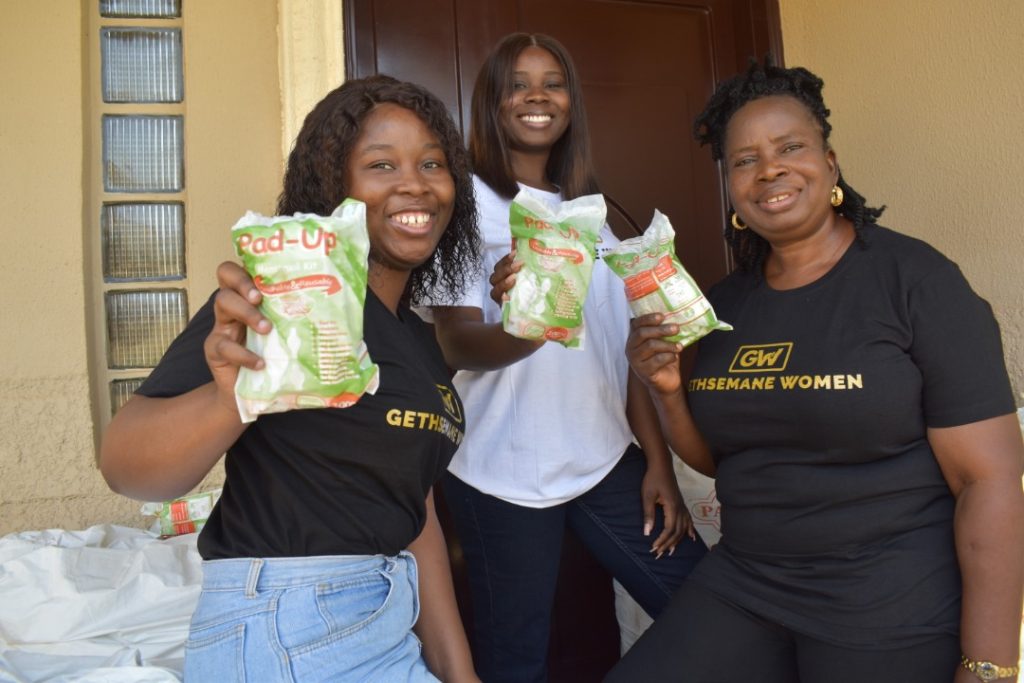Dignified Flow

In many IDP camps, the main focus is to ensure food for the family. “Obtaining sanitary pads for a monthly period is the least of people’s concerns,”
Pastor Loveth Orhonor and her team have been monitoring reports about the dire situations faced by internally displaced persons (IDPs), particularly women and girls, prompting them to consider the hardships encountered. She chose to step in, and that was when the concept for the Sponsor a Menstrual Cycle Campaign named Dignified Flow emerged.
The Gethsemane Women has been leading the charge in promoting better access to menstrual hygiene products for women and girls residing in IDP camps. As per the UNHCR, the clashes in northeastern Nigeria between the military and the terrorist organization Boko Haram have caused the internal displacement of more than two million individuals, with most being women, girls, and children.
During the COVID-19 pandemic, they are especially at risk as access to food and other forms of aid is becoming more restricted.
“In many IDP camps, the main focus is to obtain food for the family.” “Obtaining sanitary pads for a monthly period is the least concern for individuals.”
“However, sanitary pads are not inexpensive.” For individuals who succeed in obtaining the funds, it is frequently a challenge. Many girls cannot pay for it, so they use bits of fabric to gather menstrual blood. This is unsanitary, particularly when you think about girls from families that are barely managing to provide clothing for themselves.”
We believe that prioritizing access to sanitary towels and sanitation facilities is essential when planning interventions for IDPs. In most conflicts, men and women are frequently impacted in distinct ways, and it is essential to ensure that no one is overlooked when tackling these matters.
This is why we initiated our campaign to support the distribution of sanitary pads and menstrual hygiene kits to women and girls in IDP camps.
Inadequate menstrual hygiene can lead to health risks and has been associated with reproductive and urinary tract infections, raising concerns in Nigeria. The Water Supply and Sanitation Collaborative Council (WSSCC), along with local partners, has been tackling menstrual health and hygiene concerns in Nigeria since 2011.
A significant achievement in this initiative was the creation of a Technical Working Group on Menstrual Health and Hygiene Management in Nigeria by the Federal Ministry of Women Affairs (FMWA), with assistance from WSSCC.
Eliminating barriers to the welfare of menstruators in Nigeria necessitates taking into account several factors. Concerns regarding beliefs, misinformation, and availability of sanitary towels, among other things, need to be tackled.
The stigma surrounding menstruation in many households creates a significant issue. Certainly, education about menstruation should start within the family as both girls and boys reach puberty. In many households, though, talking about sexual reproduction is considered a ‘no-go’ topic. The girl, in particular, must depend on her mother for her education. Her mother imparts her restricted knowledge on the topic to the daughter.
